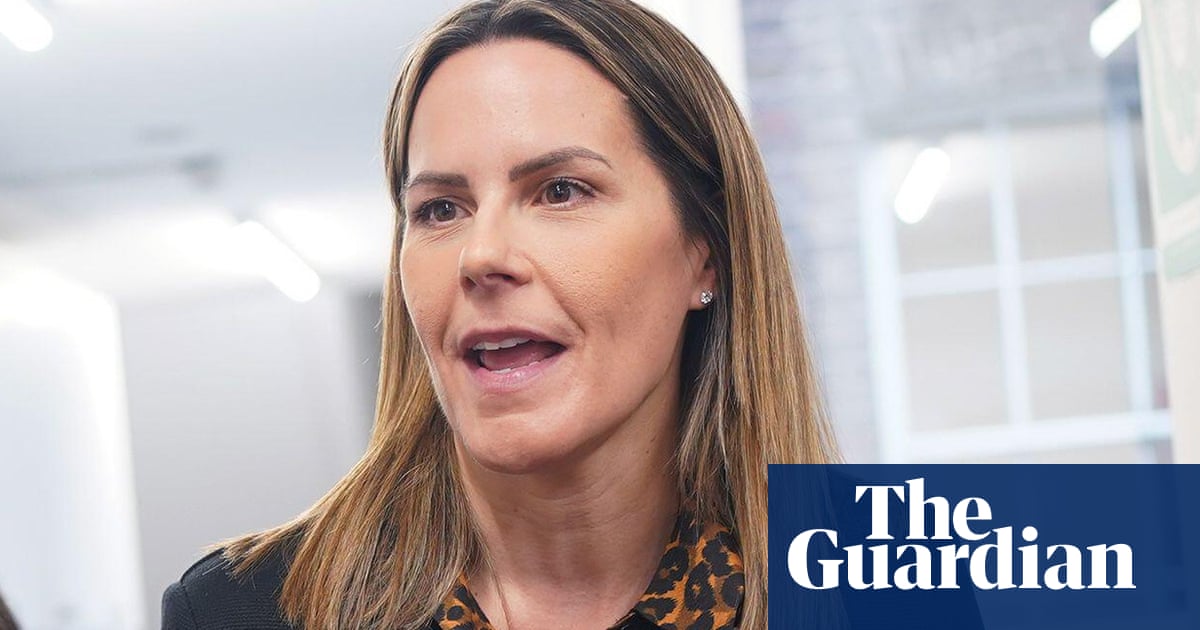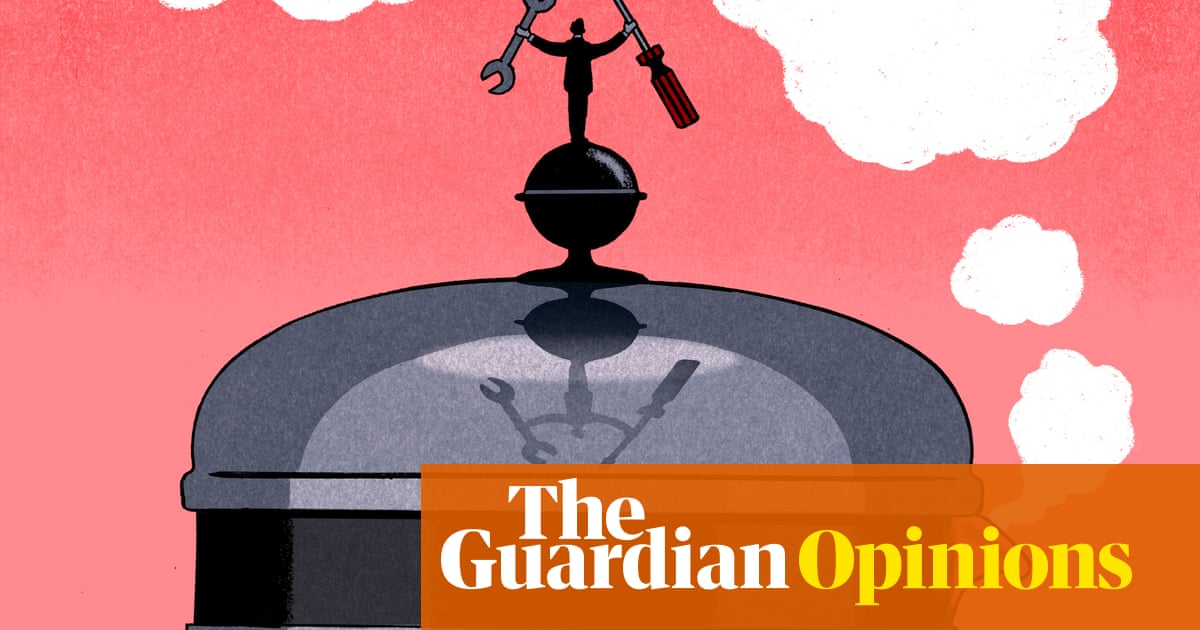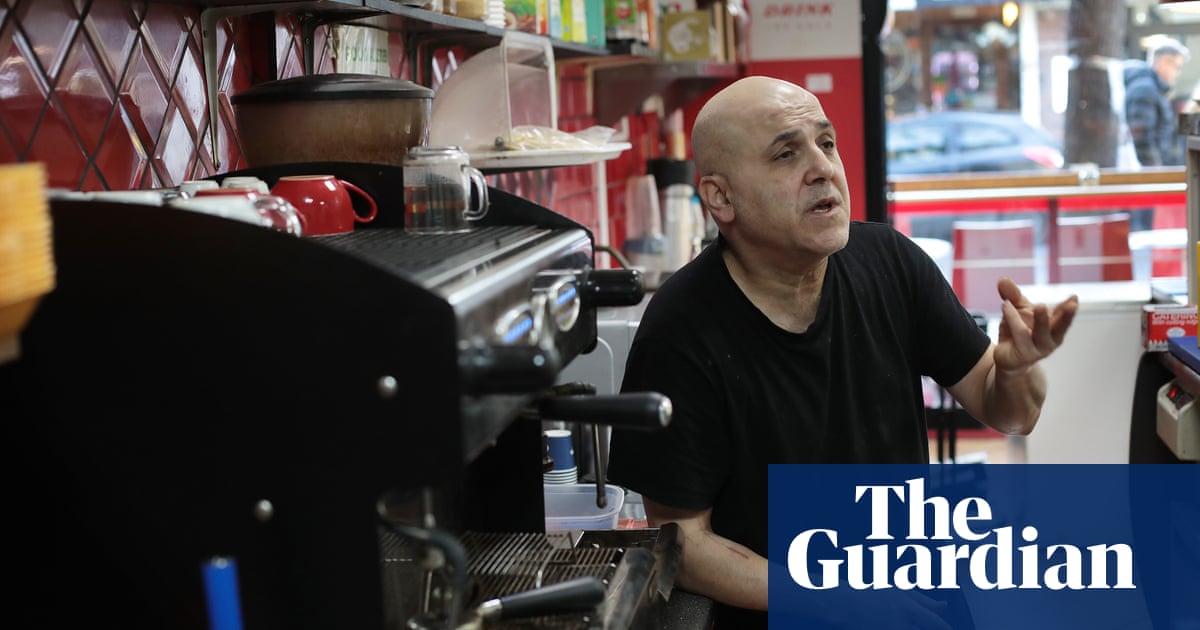
he Liverpudlian folk hero Jamie Webster has become used to lyrics from his hit song Something’s Gotta Give – “How can you tell me that this is where it’s at / When all the clowns are calling the shots?” – being quoted on social media whenever his city hits the headlines. He says his music fans – “the ordinary working man and woman” – use the song to channel their frustration at those in power.
And there’s been plenty of opportunity in the last year. In October the city had one of England’s highest rates of coronavirus deaths and became the first UK region to be placed into a tier 3 lockdown. Then political turmoil hit when the Labour mayor, Joe Anderson, was arrested along with other council officials as part of an investigation into allegedly corrupt building and development contracts. (Anderson has denied any wrongdoing.) The government ordered commissioners to work alongside city councillors in some departments, describing a “dysfunctional” council with “an environment of intimidation”.
As Webster says, his city has always “stood to the left”, with some of the safest Labour seats in the country and no Conservative councillors. But will that frustration be in the minds of voters as they go to the polls on 6 May, when a new city mayor will be elected alongside 30 councillors, a police and crime commissioner and a mayor for the city region?
Tom Crone, the Green candidate for city mayor, says it is the most unpredictable election in the city in his 15 years of experience. “The Labour vote in Liverpool is extremely demoralised and extremely soft,” he says. The local scandal hasn’t helped, but neither has the national party.
Keir Starmer feels like an “undercover Tory”, says Jason, a 44-year-old personal trainer who doesn’t want to give his last name. He hasn’t yet decided where to cast his vote but says he and his friends don’t feel like the Labour leader is representing them.
“He’s a sellout,” says Michael Robinson, 29, of Starmer. Robinson is a bike courier and grew up in a Labour-supporting family. “It’s the same reason I supported Liverpool, it’s like a genetic thing almost.” However, the only recent leader he believed in was Jeremy Corbyn, and Robinson is planning to vote for Stephen Yip, an independent candidate in the mayoral race.
Cathy Jackson, a 63-year-old retired NHS carer, is also backing Yip, similarly disillusioned with Starmer (“a Tory in a red tie”) and feeling betrayed by Anderson, who she says has “ruined the city”. Jackson describes her grandmother hosting the former Labour leader Harold Wilson in her house when he was the MP for Huyton, and counting election rolls when she was a child – “so we were brought up in a strong Labour household, but now I just think it’s time for change”.
Yip, who since 1975 has run Kind, a charity for children from disadvantaged backgrounds, is a well-liked and respected figure in the city. His campaign is focused on “oversight, transparency and accountability”.
His story is typical of the city he hopes to represent: a former Labour member, he’s lived for all of his 66 years in the city centre, born in one of the last “back-to-back” terraces within earshot of the one o’clock gun, said to be the mark of a true scouser. Speaking from Kind’s headquarters, where children are pond-dipping and playing with the in-house dog, Yip describes his childhood as amazing, despite growing up with 10 people in six rooms with no bath or hot water.
He acknowledges that his parents – his father was a seaman who came to Liverpool from Guangzhou in the 1930s; his mother was a nursing auxiliary – would be proud to see him running for mayor, but says it’s more about “giving back”. “Liverpool is our home,” he says. “It’s my kids’ home, it’s my grandkids’ home and it’s giving back to them … I don’t want a career in this, I see this as a one-term opportunity to stop what’s going on, reset it and then pass it on.”
Should Yip succeed in wrenching the mayoral seat out of Labour’s grasp, he will find himself in the unprecedented position of attempting to govern as an independent among a sea of Labour councillors – there are 72 reds out of 90, only 30 of whom are up for re-election. Richard Kemp, the Liberal Democrat candidate for mayor and the city council’s longest-serving councillor after 38 years, has repeatedly referred to Yip as a “well-meaning amateur”, which Yip has taken as a badge of honour. “I’ll tell you, I will take that title. I will take that over ‘politician’ any day, because look at what these politicians have done to our city, the city that these kids have got to grow up in. That’s why I’m standing.”
Jed Hodge, a retired care support worker, says Labour have retained him as a member “by the skin of their teeth”. Picking wild garlic in the gardens of Liverpool Cathedral, Hodge says he’s been a socialist all his life and a Labour supporter for most of it. Despite his disillusionment with the “lack of opposition” from the party on a national level, and the local situation which “also disgusts [him] almost to the same extent”, Hodge says he will vote for Labour’s candidate, Joanne Anderson, because her beliefs are the nearest to his own.
If elected, Anderson would be Liverpool’s first black leader, in a city with one of Britain’s oldest black communities, and the first woman to hold the role. The 50-year-old describes herself as a leftwing socialist and she crowdsourced her manifesto, resulting in a promise that every decision made by the council would be gauged by its impact on inclusion, the environment and social value. At 6ft, Anderson is a striking figure, and several locals stop her during our interview in her Princes Park ward to tell her that she has their support. A woman whizzing by on an electric scooter pauses with excitement when she recognises her.
Anderson is keen to encourage younger people to get involved in politics, saying: “It’s the same old faces. I’m bored of them, so I don’t know how anyone else feels.” One of those younger people is Isabelle Macauley, 18, who has become involved in Anderson’s campaign, describing herself as typical of several of her peers who have become politicised through the Black Lives Matter movement and climate issues. She says Anderson is “so fresh and new, and what the city and we all need”.
Anderson says people tried to push her into politics her whole life, but she was always reluctant. After a chaotic initial shortlisting process, Anderson threw her hat into the ring, saying she saw “an opportunity to do some good”. Anderson has the advantage of only two years on the council, and the party is hoping voters will see past the similarity in name to the former mayor. People used to call her Jo, she says, laughing, but she prefers Joanne now, “for obvious reasons”.












